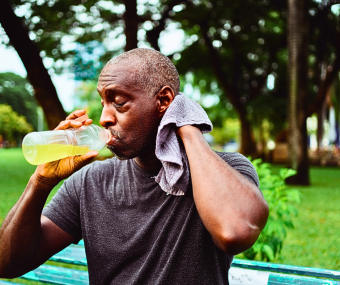Beat the Heat: Stay Safe During Extreme Hot Weather
According to Ready.gov (2023), during extreme heat, the body must work extra hard to maintain a normal temperature. This can lead to illness and even death. Older adults, children, and those that are sick or overweight have a greater risk.
Some ways to stay safe during extreme heat include:
- Use air conditioning or go to a cooling center
- Drink plenty of fluids
- Avoid outdoor activities, especially during midday heat
- Take cool showers or baths
- Wear loose, lightweight, and light-colored clothing
- Find shade
- Never leave people or pets in a closed car
- Check on family members, older adults, and neighbors
- Make sure pets also have plenty of cool water and shade
- Keep an eye out for heat related illness
A person may be having heat cramps or exhaustion, if they have muscle pains or spasms, heavy sweating, tiredness, weakness, dizziness, headache, fainting, nausea, or vomiting. If this happens, go to a cooler location, take sips of sports drinks or water, and take off any excess clothing. Call a healthcare provider if symptoms get worse or last more than one hour.
A person may be having heat stroke if they have a high body temperature (above 103 degrees F, taken orally); red, hot, and dry skin; no sweat; rapid/strong pulse; and dizziness, confusion, or lose consciousness. Call 9-1-1 or seek immediate medical help if this is happening.
Check out this infographic to learn more about ways to be prepared for extreme heat:
https://www.ready.gov/sites/default/files/2021-01/ready_extreme-heat_info-sheet.pdf


